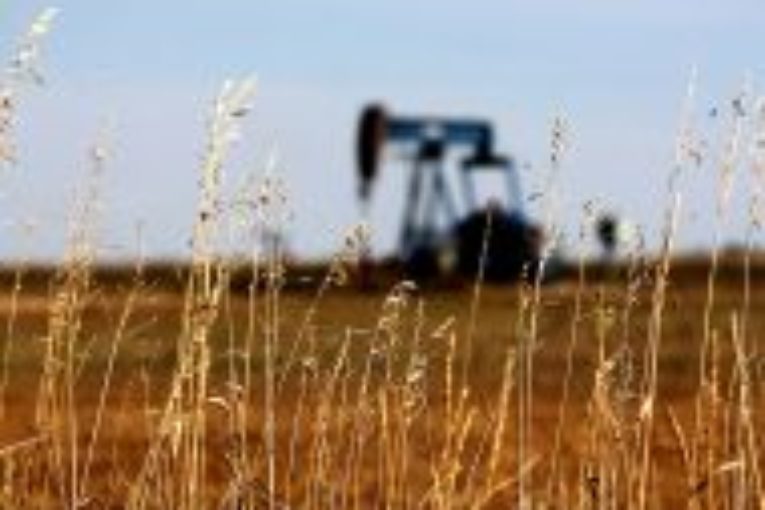
CALGARY — The day after being sworn in as Alberta’s premier, Jason Kenney has picked fights on two different fronts by threatening a constitutional challenge against Ottawa over Bill C-69 and declaring a new law that gives the power to cut off oil shipments to British Columbia.
On Wednesday, Environment Minister Catherine McKenna added steam-driven oilsands facilities to the list of projects that are subject to federal environmental reviews, but said it will exempt those same projects on the condition that Alberta keeps certain environmental policies in place.
“The federal government has zero constitutional authority to Bigfoot in here and pretend that they can regulate in situ oilsands development,” Kenney said Wednesday, following the federal government’s announcement.
Alberta had placed a hard 100-million tonne cap on oilsands emissions in 2015, part of a broader environmental plan introduced by the former NDP government. Kenney said while his newly elected United Conservative government does not intend on lifting the oilsands emissions cap, he argued the province would challenge Bill C-69 if it’s passed in its current form. Kenney and newly installed Energy Minister Sonya Savage are travelling to Ottawa on Thursday to discuss the bill.
The Canadian oil industry is “nowhere near” hitting the emissions limit right now, said Explorers and Producers Association of Canada president Tristan Goodman, who added the fight over the cap might be more relevant in 10 years.
Still, the industry appreciates Kenney’s willingness to pick a fight with Ottawa over a bill that Goodman said is “significantly problematic.” The EPAC president, who represents oil and gas companies, is in Ottawa this week to press for changes to Bill C-69.
“The current bill as it’s written is completely unacceptable if you wish to see natural resource development,” Goodman said, noting that he was encouraged the federal government has signalled it’s “genuinely interested in amendments that can improve this bill.”
Goodman also said he’s not concerned about Kenney’s approach to negotiating with B.C. Premier John Horgan on the need for the Trans Mountain Expansion pipeline.
Alberta Premier Jason Kenney and Minister of Energy Sonya Savage discuss preserving Canada’s economic prosperity act, which enables Alberta to restrict energy exports, during a press conference in Edmonton on Wednesday May 1, 2019.
Kenney and Savage also proclaimed Alberta’s “turn-off-the taps” legislation into law on Tuesday that would give the provincial government the power to restrict the flow of oil and refined products to B.C. — though they said the government wouldn’t use the bill’s powers to hurt B.C. yet.
“We will look at other ways of responding before we get to this strongest tool in our toolbox,” Kenney said.
Alberta’s NDP, the new official opposition, said proclaiming the bill as law without using it was like accidentally detonating a missile on a launch pad before firing it — because proclaiming the law gives B.C. the opportunity to challenge it.
Indeed, B.C.’s government applied for an injunction Wednesday to deem the law unconstitutional in an attempt to ensure it would have adequate oil, gasoline, diesel and jet fuel supplies for the province. The B.C. government also opposes the Trans Mountain pipeline expansion, which would make space for the existing pipeline to send more light oil, gasoline and diesel to the Vancouver region.
Still, analysts don’t believe that proclaiming Alberta’s law is a wasted effort.
The law will have a more profound psychological effect in British Columbia where commuters are currently paying the record-high gasoline prices, Gas Buddy senior petroleum analyst Dan McTeague said.
“The mere fact that it has been proclaimed provides a lot more leverage in terms of negotiations at a time when there is little doubt Vancouver, the Lower Mainland and British Columbia are suffering through — particularly in Vancouver, the highest prices ever recorded in North America,” he said.
The average price for gasoline in Vancouver was $1.69 per litre on Wednesday, according to Gas Buddy.
“The timing is certainly one that would get the attention of most,” McTeague said.
Horgan has been grilled on what he can do to reduce costs for British Columbians in recent weeks and suggested on Wednesday the existing Trans Mountain pipeline could ship more refined products to Vancouver.
Private companies and refineries in Edmonton control what is shipped on the line through contracts with Trans Mountain Corp.
Alberta’s government has already forced oil producers to curtail their output in a bid to lift domestic prices. An additional order restricting oil shipments to the West Coast would be difficult to implement and painful under the circumstances, but Goodman said the oilpatch isn’t concerned “at all” because companies are desperate for a new pipeline.
With files from Jesse Snyder
• Email: [email protected] | Twitter: geoffreymorgan
You can read more of the news on source
